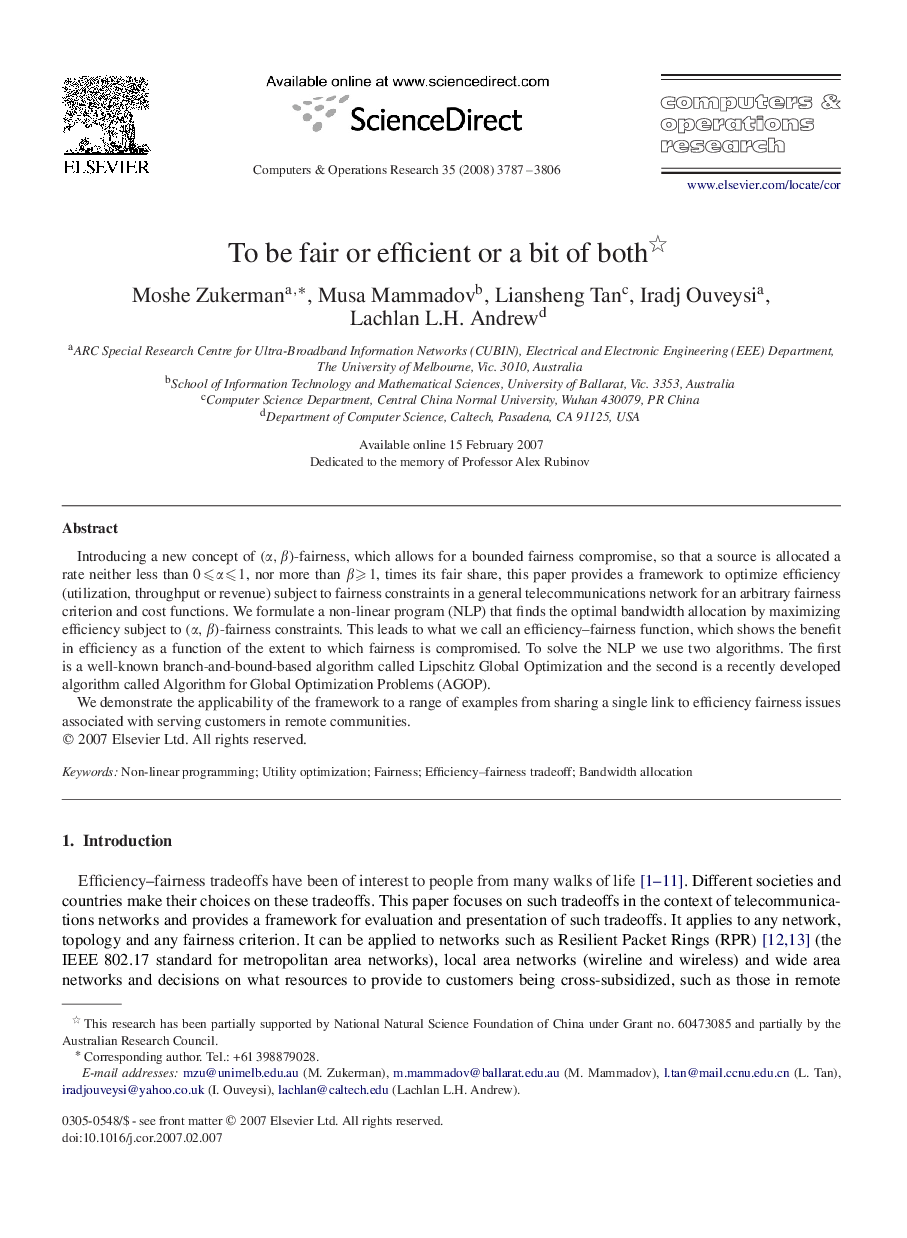| Article ID | Journal | Published Year | Pages | File Type |
|---|---|---|---|---|
| 475382 | Computers & Operations Research | 2008 | 20 Pages |
Introducing a new concept of (α,β)(α,β)-fairness, which allows for a bounded fairness compromise, so that a source is allocated a rate neither less than 0⩽α⩽10⩽α⩽1, nor more than β⩾1β⩾1, times its fair share, this paper provides a framework to optimize efficiency (utilization, throughput or revenue) subject to fairness constraints in a general telecommunications network for an arbitrary fairness criterion and cost functions. We formulate a non-linear program (NLP) that finds the optimal bandwidth allocation by maximizing efficiency subject to (α,β)(α,β)-fairness constraints. This leads to what we call an efficiency–fairness function, which shows the benefit in efficiency as a function of the extent to which fairness is compromised. To solve the NLP we use two algorithms. The first is a well-known branch-and-bound-based algorithm called Lipschitz Global Optimization and the second is a recently developed algorithm called Algorithm for Global Optimization Problems (AGOP).We demonstrate the applicability of the framework to a range of examples from sharing a single link to efficiency fairness issues associated with serving customers in remote communities.
